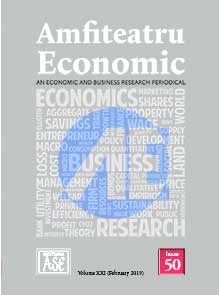German Students’ Perception of Bioeconomy – An Exploratory Study
German Students’ Perception of Bioeconomy – An Exploratory Study
Author(s): Nina Golowko, Katrin Marquardt, Sonia Budz, Ulrike Foerster-MetzSubject(s): Economy, Business Economy / Management
Published by: EDITURA ASE
Keywords: bioeconomy; sustainability; higher education institutions; third mission; transformative university; societal transformation processes;
Summary/Abstract: In the present society, the concept of bioeconomy emerged due to the need for a sustainable and responsible change regarding the impact mitigation of several factors on the environment. The rising consumption and the resulting emission of pollutants are interconnected with both economic and population growth. Therefore, measures must be taken using new technologies and solutions, improvement of production methods and the necessary transformation of society through education. Several universities have aligned with the demands and needs of the present and future society regarding sustainability, called ‘transformative universities’. A high-quality education system is a prerequisite to sustainable and transformational efforts as well as transparent, participative processes and a close dialogue and cooperation between science, economy, politics and civil society.The purpose of this research is to bring more awareness, receptivity and responsiveness to the problems of society with a focus on bioeconomy.Therefore, this article is divided into three sections. The first part comprises a summary of bioeconomy related to education and the role of higher education institutions in societal transformation processes. The second part contains the quantitative and qualitative analysis and evaluation of the results of an explorative online survey about the perception of bioeconomy and sustainability of students exemplified by students from two German universities. The third part concludes the article with a summary of findings and prospects for further researches in this area.This research is useful especially for public and educational institutions, organisations that have a direct or indirect impact on the environment, and other stakeholders interested in environmental conservation.
Journal: Amfiteatru Economic
- Issue Year: 21/2019
- Issue No: 50
- Page Range: 138-151
- Page Count: 14
- Language: English

